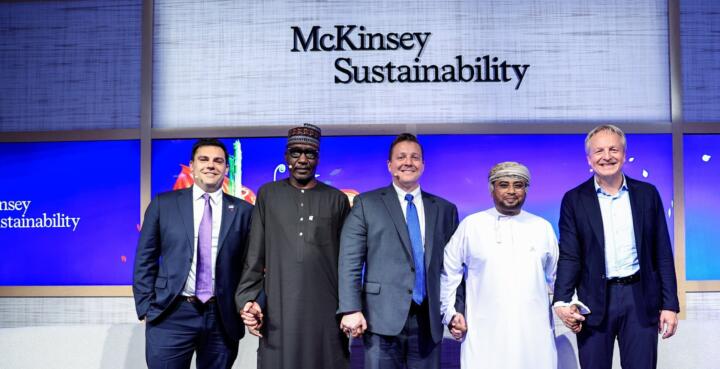InfoStride News reports that the Nigerian National Petroleum Company Limited (NNPCL) is strategically establishing a regional gas pipeline network to facilitate the distribution of natural gas across Africa. The revelation was made by Mele Kyari, the Group Chief Executive Officer of NNPCL, during a Regional CEO Panel organized by McKinsey & Company at the COP28 Conference in Dubai on December 4.
In a statement by Olufemi Soneye, the Chief Corporate Communications Officer at NNPCL, Kyari emphasized the significant role the company aims to play in enhancing Africa’s Liquefied Natural Gas (LNG) supply to the global market.
Drawing attention to Nigeria’s vast natural gas reserves, currently standing at 206 trillion cubic feet (tcf) with the potential to increase to 600 tcf, Kyari underscored the country’s commitment to utilizing gas as a key driver for its journey towards energy transition.

The CEO highlighted NNPCL’s ongoing efforts to eliminate gas flaring in almost all of its gas projects. This strategic move is geared towards redirecting such gas resources to the development of power plants nationwide. The intended outcomes include bolstering electricity supply across the nation, generating employment opportunities, and catalyzing industrial and economic development.
It is noteworthy that Nigeria, under its Decade of Gas initiative, is actively pursuing a transformation into a gas-based economy, encompassing power generation, automobile use, industrial applications, and clean cooking.
Mele Kyari, during his presentation, emphasized the necessity for Africa to undergo a “just, differentiated transition” to effectively harness its resources for present and future generations. He urged the global community to acknowledge Africa’s unique circumstances when addressing the impacts of climate change on energy-related industries.
Kyari articulated:
“I have always advocated for a differentiated and just energy transition. In Africa, we have different circumstances compared to other places in the world. In Africa today, 75% of our population doesn’t have access to electricity, leaving us with biomass as a key energy source. The world needs to recognize that the most practicable thing today is to substitute what we have in the short term to close the energy gap for our rising population.”
Considering Nigeria’s projections to become one of the top 10 global economies by 2035 and third in terms of global population by the same year, Kyari emphasized the imperative to address energy poverty. He stressed the need for nations to collaborate in achieving net-zero emissions by 2050.
In a noteworthy commitment to a sustainable future, NNPCL recently became the first state-owned oil company to join the United Nations Global Compact in New York. By signing up
Support InfoStride News' Credible Journalism: Only credible journalism can guarantee a fair, accountable and transparent society, including democracy and government. It involves a lot of efforts and money. We need your support. Click here to Donate
